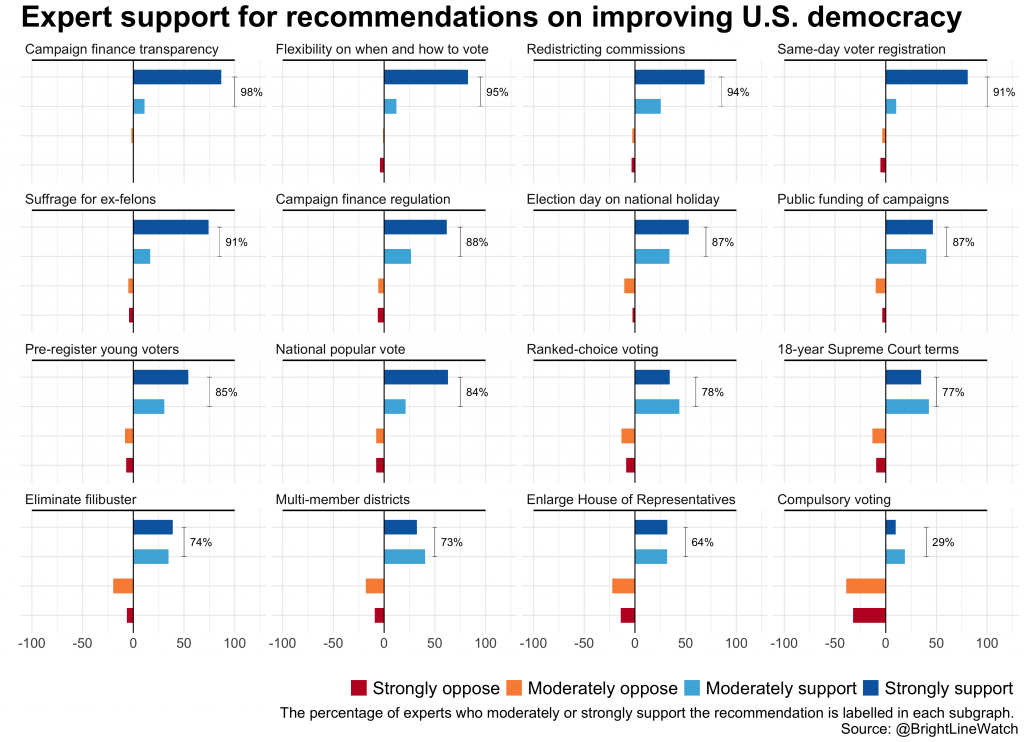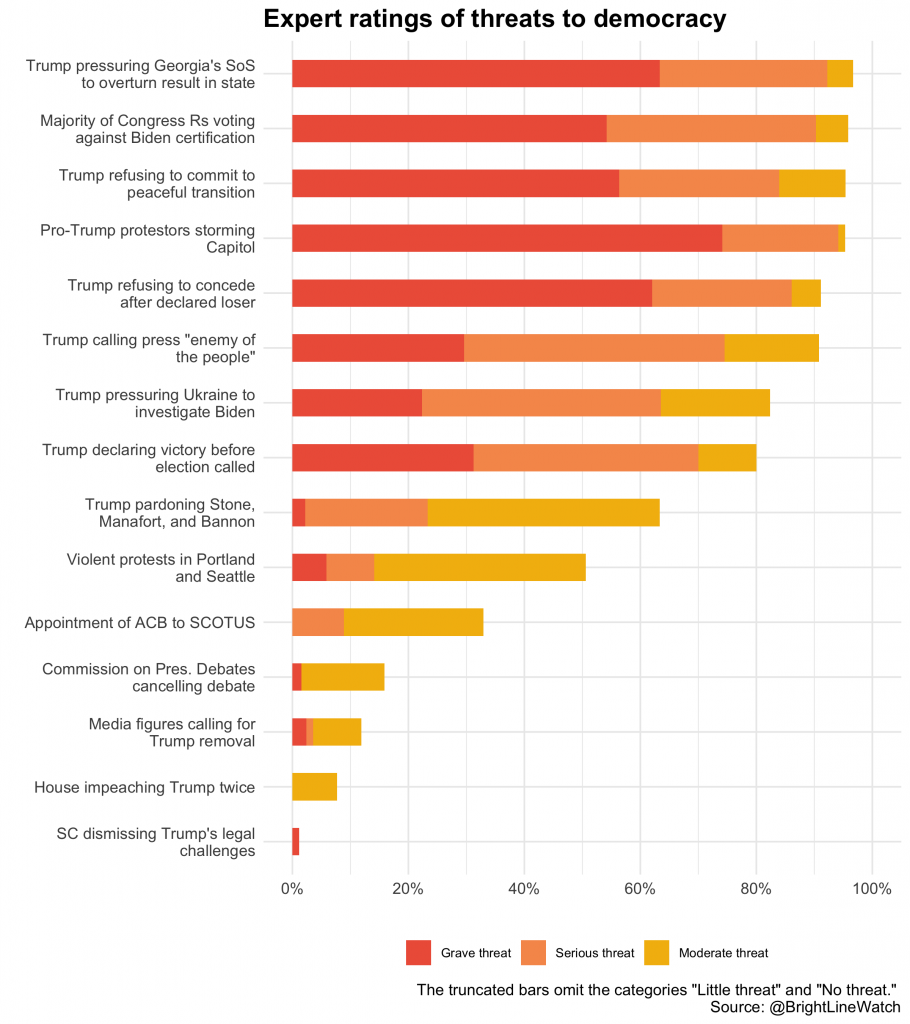We asked our experts to assess 16 prominent reform proposals that aim to improve the quality of American democracy. Many of the proposals are drawn from the Our Common Purpose project that was coordinated by the American Academy of Arts and Sciences. Each expert participant was asked to rate eight randomly drawn proposals. The full set of statements describing each reform is in the Appendix. The figure below shows expert support and opposition for each proposal.

Experts overwhelmingly support the proposed reforms. Of the 16 we tested, majorities of our expert respondents strongly supported 9 and strongly or moderately supported 15. The only proposal that did not garner majority support was compulsory voting.
The proposals fall into distinct categories. The largest group aims to increase voter participation, particularly among traditionally marginalized groups. Increasing flexibility on when and how ballots can be cast (95% support), guaranteeing suffrage rights to ex-felons (91%), same-day registration (91%), moving Election Day to a national holiday (87%), and pre-registering young voters (85%) all attracted support from more than four in five experts. By contrast, compulsory voting was supported by only 29% of experts, perhaps reflecting discomfort with the manner by which it tries to increase participation as well as recent research on the range of unintended consequences it can generate, including disillusionment with democracy itself.
Another group of proposals seeks to reduce the influence of large individual and corporate campaign donors in American elections. These include increased transparency on the source of donations, providing public campaign funding, and amending the Constitution to impose greater restrictions on private spending. All these garner strong support among the experts (98%, 87%, and 88%, respectively).
A third set of proposals focuses on the rules for converting voter support into representation. At the top of this list is requiring states to establish non-partisan redistricting commissions to reduce partisan gerrymandering (95% support). Next, at 84%, is support for switching to a system in which the president is elected by direct popular vote instead of by the Electoral College.6 Also in this category are two electoral reforms, ranked-choice voting (78% support) and eliminating the requirement for Members of Congress to be elected from single-member districts (73%), both of which aim to open paths to electoral success for candidates other than those who can prevail in either Democratic or Republican primary contests.
In turn, enlarging the House of Representatives (64%) would increase the ratio of representatives to citizens, allowing for a more fine-grained mapping of representatives’ characteristics onto constituent preferences.
The last two proposals focus on the conduct of governance rather than elections. The first would limit the period for which federal judges could serve on the Supreme Court to 18 years (77% support), guaranteeing a vacancy on the Court every two years. This proposal seeks to reduce the stakes for high court appointments and thereby cool the attendant politics both during elections and in the day-to-day operation of the Senate. The next would eliminate the 60-vote requirement to suspend debate in the Senate, eliminating the filibuster and effectively returning the chamber to majority rule (74%). …
Threats to democracy
To further unpack the significance of these events, we asked experts to rate the severity of the threat they posed to democracy. Unsurprisingly, more than 90% of experts viewed the items that scored highest across the (ab)normality-and-importance dimensions as either a moderate, serious, or grave threat.

One item that our experts rated as abnormal was also one that few viewed as posing much of a threat to democracy: the House impeaching President Donald Trump for a second time. In total, 93% of our academic experts rated the two impeachments themselves as presenting little or no threat to U.S. democracy (7% sensed a moderate threat; none said it was a serious or grave threat). In the wake of Trump’s second acquittal, some prominent Republicans have voiced a different perspective, predicting that the impeachments would create a spiral of partisan retribution. For instance, Senator Lindsey Graham suggested that Vice-President Kamala Harris could be impeached if Republicans retake the House of Representatives for having expressed support for Black Lives Matter protesters in summer 2020.